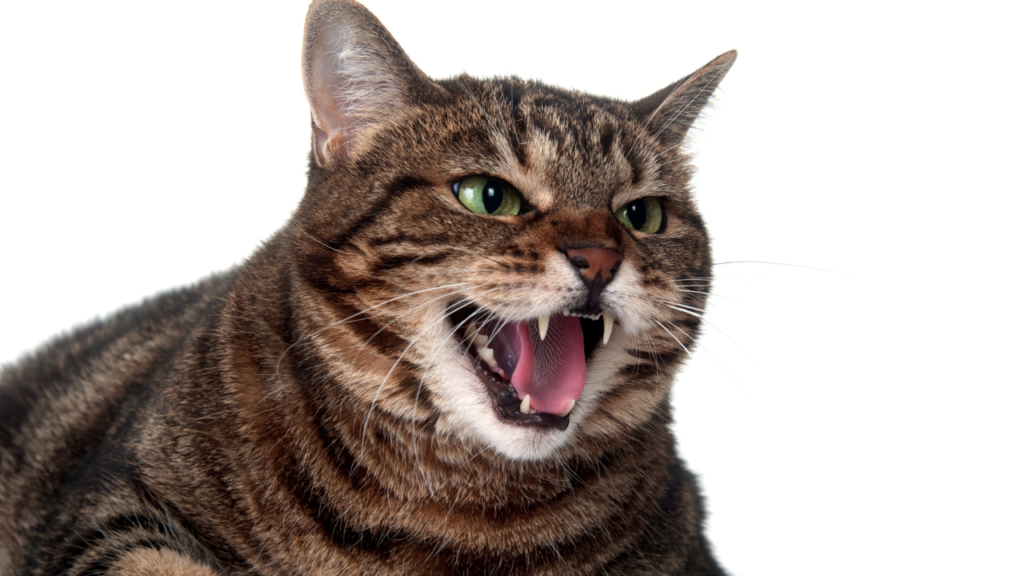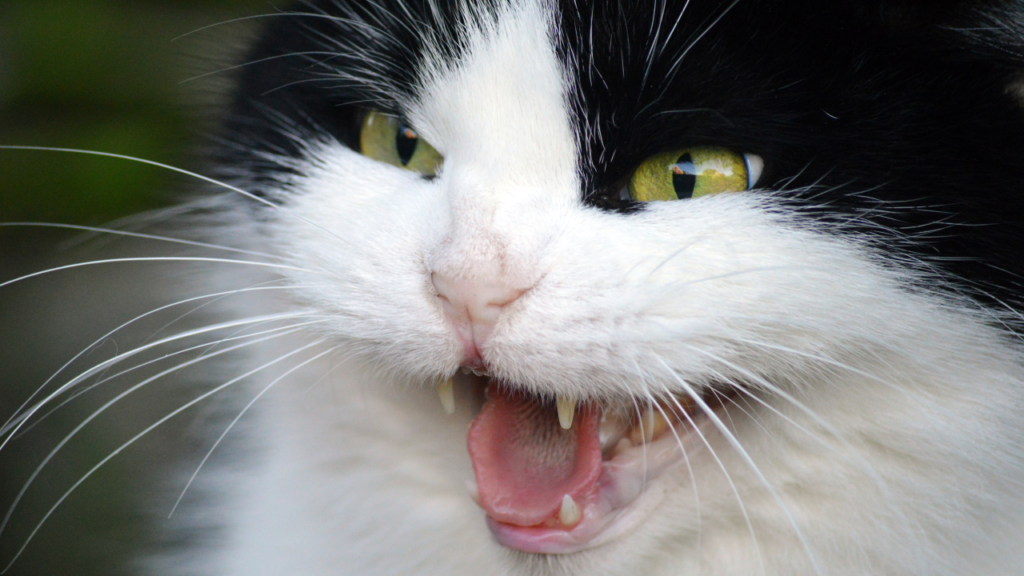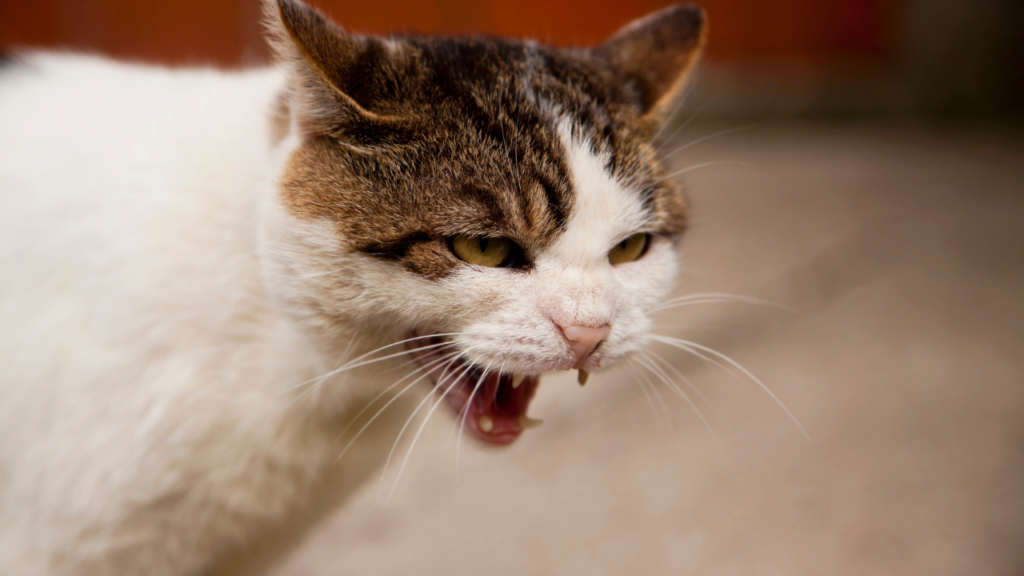
When we think about cat noises, the words “meows” and “purrs” usually come to mind first. Cats, despite their reputation as anti-social animals, produce different sounds. Notably, a cats hiss, similar to a snake. A cat’s hiss may halt you in your tracks, just as a snake’s hiss might if you came across it in the wild. Why does a cat hiss? In general, the stop-in-your-tracks reaction is exactly what a feline wants—your attention, and potentially you (or another person or animal) to stop whatever they were doing.
A cat hissing can be frightening for humans or other animals, and the sound is occasionally preceded by a physical activity such as scratching or pouncing. Cats frequently hiss to protect themselves. You’ll probably want to avoid making a cat hiss. Understanding why a cat hisses is a vital first step.
Why does a cat hiss?
Cats hiss for a variety of factors, and your kitten may give you the snake treatment for a number of them. Notably, a cat’s hiss can be disturbing, but it is a normal reaction to a circumstance that the feline perceives as strange. Determine whether your cat has or may be experiencing one of these typical hiss-inducing events.
Something terrifying. “Scaredy cat” is more than just a term used to describe someone who is terrified of something minor. Cats, like people, can be terrified. Perhaps you approached your cat too hastily, or Kitty dislikes the banging of pots and pans as you dig through a cabinet. If cats are terrified, they may hiss at larger creatures, such as dogs. Sometimes a cat will flee after hissing. These hisses can also serve as a signal to cease before a cat resorts to physical protection.
Your cat is annoyed. Sometimes the cat isn’t terrified, but rather annoyed by a behaviour, such as touching beneath its tummy. Again, these hisses are a message to cease.
Rough play. Some cats like rough play. However, there may come a time where the game is no longer enjoyable. A cat may hiss to inform a person or another animal that “game over” (or to reduce the intensity).
Safeguarding resources. If a cat believes that a person or another animal is invading their personal space, they may hiss or growl. Dogs and humans behave similarly (for example, shouting). Make sure a cat’s food bowls, litter, and any cherished toys or resting locations are not easily accessible to other pets, and limit your interaction with them to cleaning and feeding.
Pain. Sometimes a cat’s hiss isn’t coming from you. Instead, your cat could be in discomfort.
What to do if your cat is hissing

To a certain point, your next steps when a cat hisses will be determined by whether the trigger is a person or a pet. However, regardless of whether the hissing was directed at you or another creature, you should investigate the source as soon as possible. Furthermore, if a cat begins hissing persistently out of nowhere, you should see a veterinarian to rule out any medical issues.
How to prevent a cat from hissing at other people.
If your cat is hissing at you or someone else in the house, cease whatever is causing it. If possible, avoid repeating that behaviour in the future. For example, if your cat dislikes belly rubs, show him affection in other ways.
Did a child cause the hiss? There’s a lot about introducing a kitty to a newborn infant. However, as that tiny one begins walking, the next steps involve training a child. Children must be taught correct animal treatment, so use the warning injection as an opportunity to teach your child how to properly interact with a feline. For example, show a child how to pet a cat with delicate hands or approach it gently.
How to prevent a cat from hissing at other animals?

If your cat hisses at wildlife near your home, there isn’t much you can do. To help your cat avoid stressors, you could try rearranging his treasured window perches in areas where the animals are less likely to visit.
If the cat is hissing at another pet, you have a better opportunity to interfere.
- Reintroduce your pets. Your pets may need to be separated for some time as you gradually reintroduce them through scent exchanges and encounters on opposite sides of a gate. You may feel like you’re starting again, but a short break could be beneficial in the long run.
- Keep resources separate. If it is a resource-related hiss, such as over food or a litter box, make sure each animal has their own area.
- Intervene. If your animals are physically fighting, don’t leave them to figure it out on their own. One or both of the animals can sustain significant injuries.
Final views on cats hissing.
You may favour a cat’s purrs and meows over hisses. However, a cat’s hiss is an essential tool. The hiss is frequently used as a kind of protection.Kittens hiss when they want you or someone else to stop doing something, like as petting them in a specific way or making unexpected movements. A cat may hiss when it is in discomfort. As a result, you should consult a veterinarian about any abrupt, chronic hissing that is unusual for a cat.
When a cat hisses, stop what you’re doing (or tell another person or animal to stop) and try to avoid similar triggers in the future. Unless someone or the cat is in serious pain or danger, resist acting to give Kitty time to calm down. You two can probably make up later.
